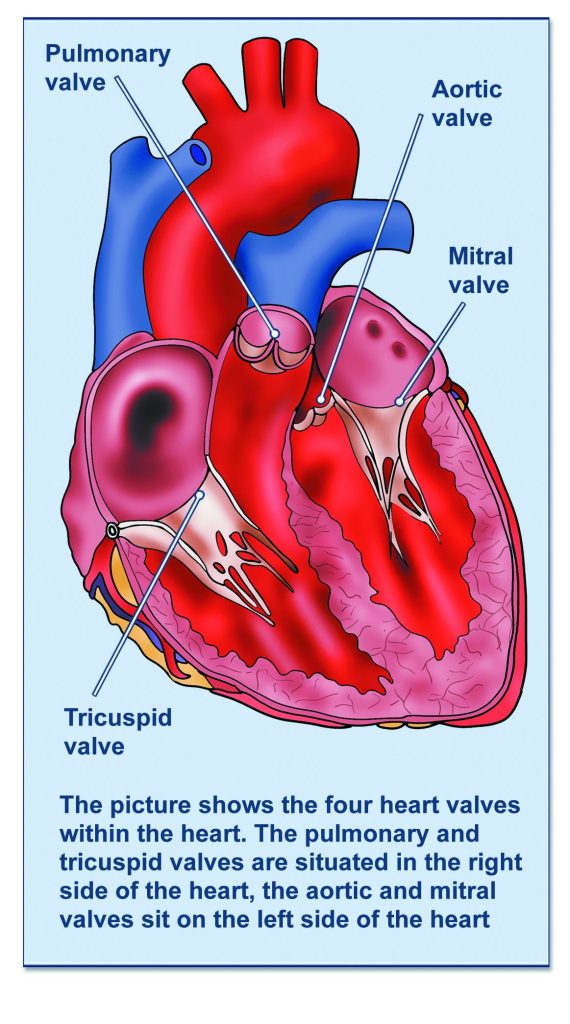There are many types of heart valve intervention. The commonest type is heart valve replacement surgery. During this operation your faulty valve is removed and a new valve is put in its place. These valves can either be metal (mechanical) or tissue (bioprosthetic, usually from pig or cow tissue). Your surgeon will discuss the different options for you according to your age and lifestyle. Metal (mechanical) valves last a long time but require you to take warfarin (a blood thinner that requires regular blood tests). Tissue (bioprosthetic) valves do not require blood thinners (warfarin) but don’t last as long as metal valves, especially in younger patients.
In some cases it is possible to repair the heart valve rather than replace it. This is usually only possible if you have a leaky (regurgitant) valve. Narrowed (stenosed) valves are not amenable to repair. A series of tests before your operation will determine whether you are suitable for valve repair.
Both valve replacement and valve repair require a general anaesthetic and the use of a heart-lung bypass machine. You will be left with a scar down the centre of the chest. If you are found to have blockages in the heart arteries you may also be offered a heart bypass operation (coronary artery bypass grafts) at the same time as your valve surgery. You will usually spend 1-2 days after the operation in intensive care and are usually discharged from hospital 7-10 days after surgery.
In some valve conditions there are newer ways of treating a faulty valve, including keyhole surgery.
Your Healthcare Professional will discuss this with you if this is an option.

